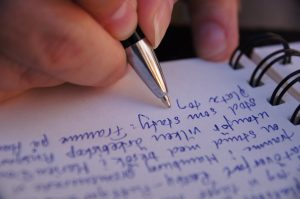
SONY DSC
This article explains that research diaries are meant for specific reflection on the processes of learning and researching. “Diary writing is seen as an opportunity for reflection and inner dialogue” (297) and that “[r]eflection as part of self-dialogue can be honest and open” (298). I believe that reflection in the world of teaching is crucial because it allows us to be critical of our practice. If we are unable to be critical and question how we teach then we are not continuing to demonstrate and seek best practice. By “…writing down thoughts and decisions [we] can document changes in thinking” (297). Our roles as educators are to be fluid in that what and how we teach continues to change as we adopt better understandings of the curriculum. I believe this idea of fluidity should be a concept that is taught to our students as well. They should learn to continually progress their understanding and build their knowledge of varying perspectives. One of my fundamental goals for students is to help them become life long learners. This should be no different for educators. Educators are constantly reflecting. However, they are often missing the critical part of action after reflecting. A research diary allows for deeper connection to our thoughts because “[r]eflection as self-dialogue reminds us that conscious reflection is an important part of development within mediated action” (299). To me, the key difference between simply reflecting and a research diary is the fact that reflection simply happens for most educators. Whereas, when writing a research diary you are consciously reflecting with the intent of action afterwards. Therefore, a research diary allows you to create a plan and connect to your previous thoughts and alter them in order to better your ideas. The idea of a research diary is one that fits with my pedagogy, in that it encourages constant change and redefining your understandings of best practice.

This is a perfect summary of how teachers reflect and how they should reflect. It is not just about thinking of how the day/lesson/whatever went, but consciously taking time to think, reflect and prepare for the next day/lesson/whatever in order to improve your teaching practices.